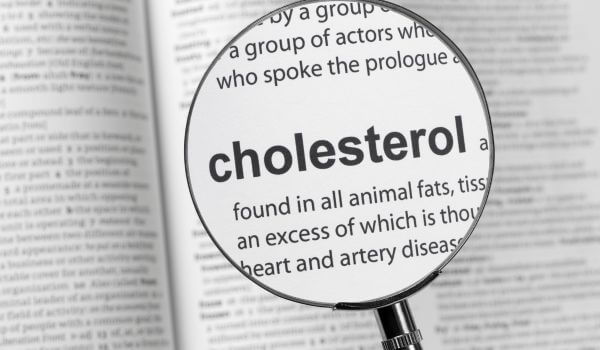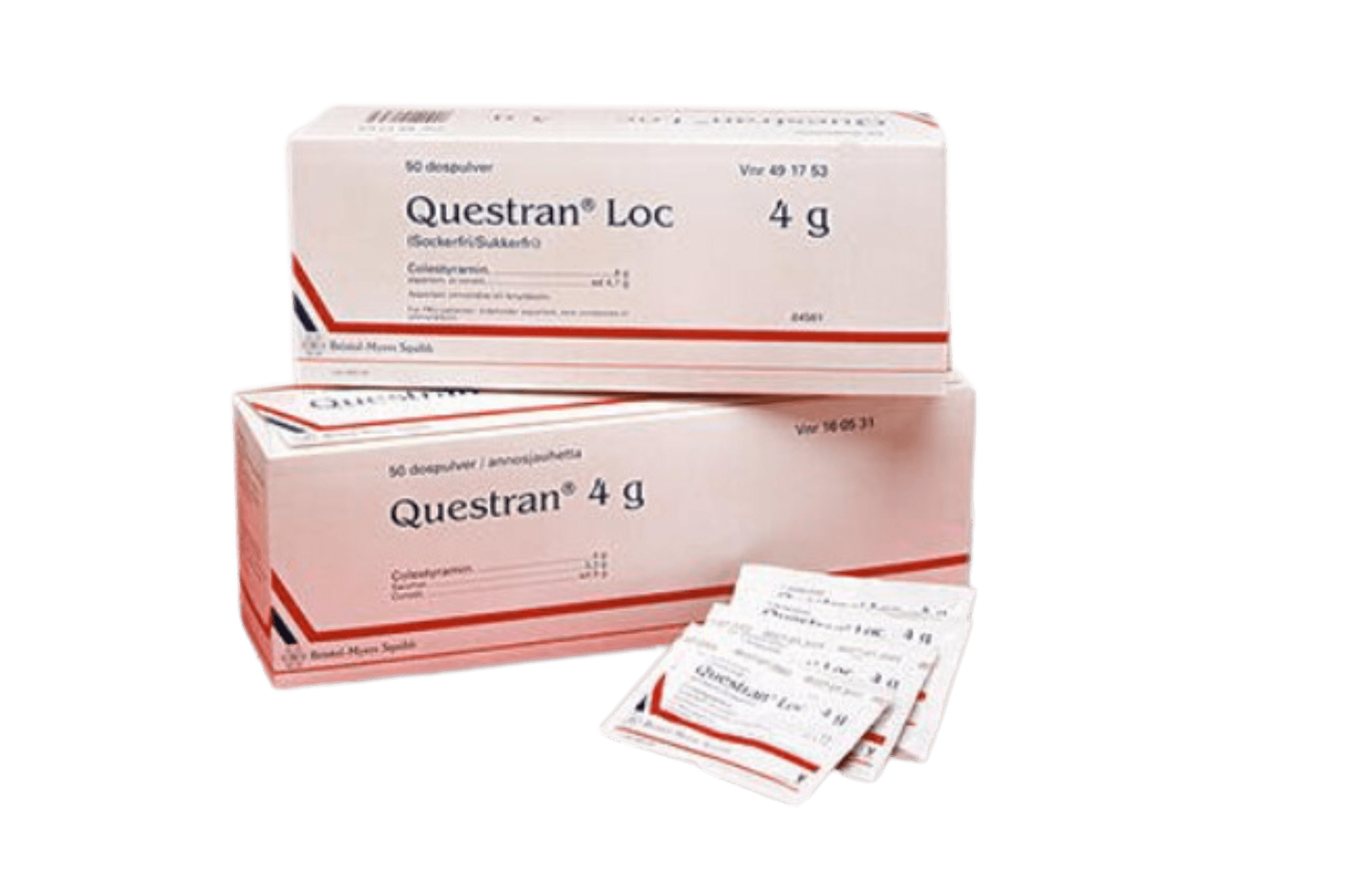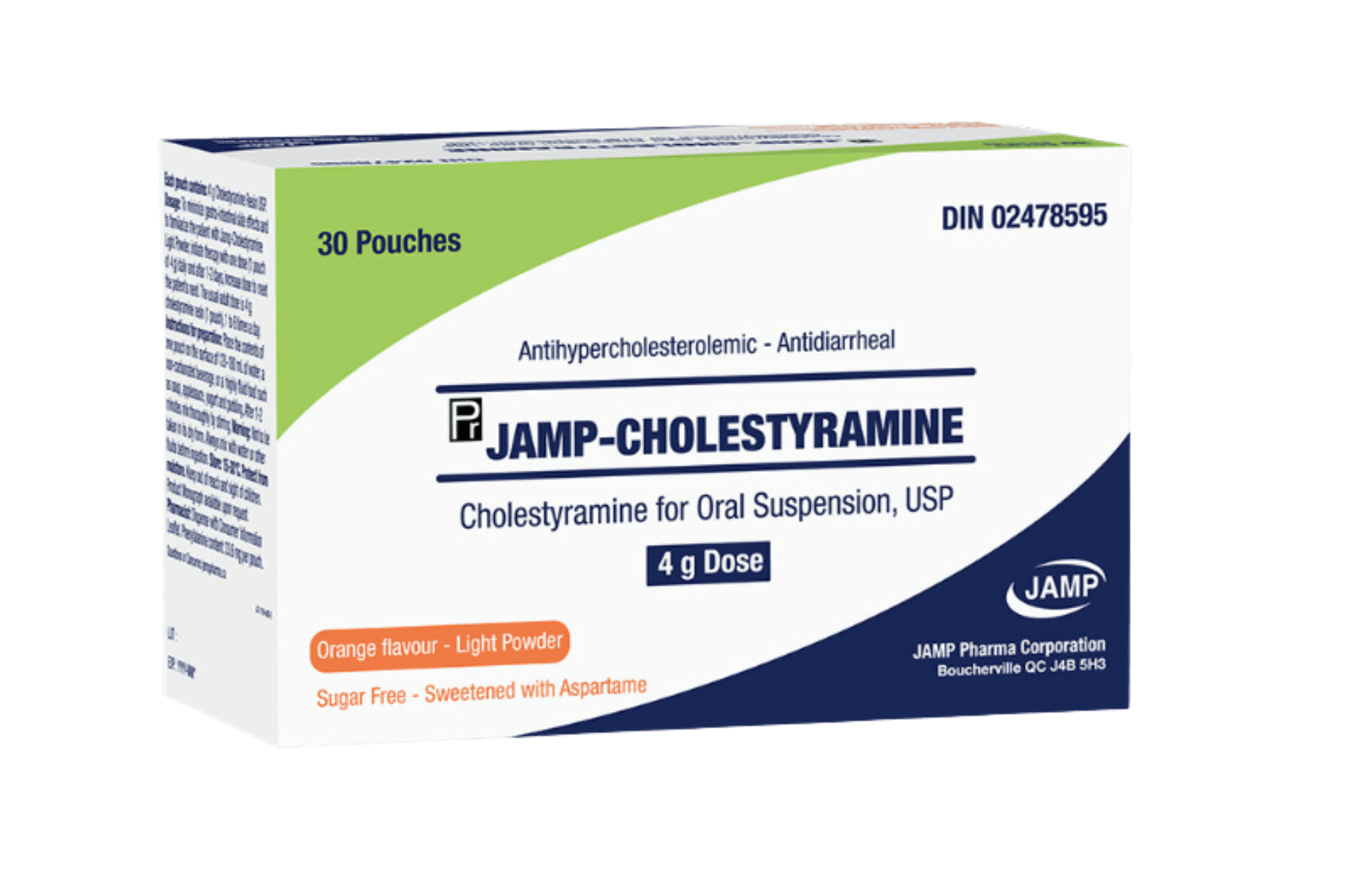Questran (
generic name: cholestyramine) is a prescription medication used to lower high cholesterol levels and treat specific conditions related to bile acid buildup.
Cholestyramine belongs to a class of medications known as bile acid sequestrants. It works by binding to intestine bile acids, preventing their reabsorption. This process causes the liver to use the excess cholesterol, mainly
low-density lipoprotein (LDL) or “bad” cholesterol, to make more bile acids, reducing cholesterol levels in the blood. Questran is often prescribed for people who have not responded well to dietary changes or other cholesterol-lowering medications.
In addition to its use for high cholesterol, Questran is also effective in treating
pruritus (itching) that may be caused by partial biliary obstruction and managing diarrhea caused by excess bile acids, particularly after bowel surgery. Cholestyramine is frequently prescribed
off-label to treat other conditions, such as chronic diarrhea caused by
irritable bowel syndrome (IBS).
Questran and Questran Light are both cholestyramine powder formulations that treat the same conditions, but Questran contains sucrose as a sweetener, giving it 14 calories per dose. Questran Light contains aspartame instead of sucrose, giving it just 1.6 calories per dose. Some studies have found that Questran Light is more difficult to prepare than Questran, but patients generally prefer the taste of Questran Light.
Dosage
Always follow the healthcare provider’s instructions about the dosage. The usual dose of Questran for managing high cholesterol is one packet (4 grams) of powder mixed with water or other liquids, taken two or three times daily. For conditions like pruritus or bile acid-related diarrhea, the dosage may vary depending on different factors determined by the prescriber.
Storage
Store Questran away from the reach of infants and children, in temperatures below 30°C / 87°F . Please read our friendly tips on handling medicine safely.
Common questions about Questron
How long does it take for Questran to lower cholesterol?
It may take several weeks to see significant changes in cholesterol levels with Questran. Regular blood tests are necessary to monitor progress and adjust the dosage.
Can Questran be taken with other medications?
Questran may reduce the absorption of other medications. To prevent this, it is recommended to take other medicines at least one hour before or four to six hours after taking Questran.
Does Questran cause constipation?
Yes,
Questran can cause constipation, especially at the beginning of treatment. Drinking plenty of water and increasing fiber intake can help reduce this side effect.
This text is for informational purposes only. Please consult a doctor or pharmacist before using any medication.
Read the information leaflet that comes with the medication.
Most people who use Questran do not experience any adverse side effects. Doctors prescribe this medication because they assess the benefits of such treatment outweigh any likely unwanted effects.
Some of the side effects that have been reported include:
- Constipation
- Stomach pain
- Gas or bloating
- Nausea
- Heartburn
Long-term use of Questran can cause constipation. To prevent it from worsening, patients should drink plenty of fluids and may need to adjust their diet as advised by the prescribing doctor. In severe cases, it may cause bowel obstruction.
Not all side effects are listed here. If these or other unlisted symptoms persist or worsen, consult a healthcare provider or pharmacist.
Questran is FDA-approved for the treatment of:
- Hyperlipidemia (high cholesterol), especially of LDL cholesterol, in patients who have not responded adequately to dietary changes. Although there may be no symptoms due to hyperlipidemia, it is detectable by laboratory blood tests and, if untreated, can have serious consequences such as heart disease and stroke.
- Itching (pruritus) caused by partial biliary obstruction. In individuals with partial biliary obstruction, the buildup of bile acids in the bloodstream causes itchy skin.
- Diarrhea due to the overproduction of bile acids, particularly in individuals who have had bowel surgery or have other digestive conditions.














